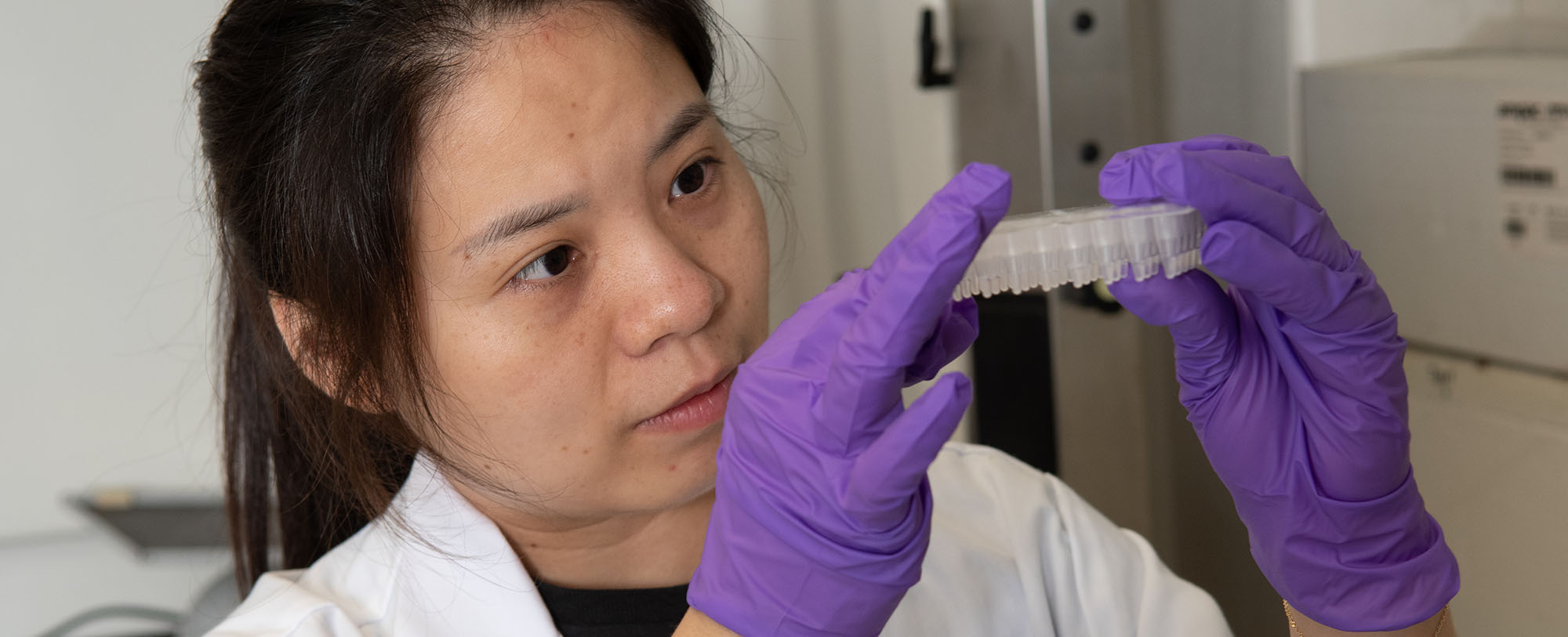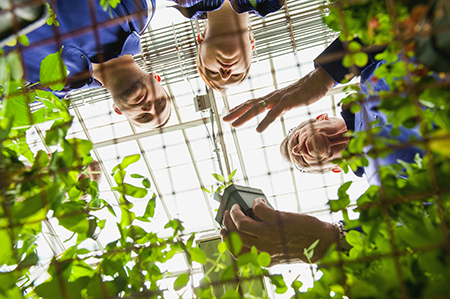
Next-Generation Learning
As the first operational land-grant university, K-State has always delivered education and advancement to improve our communities. We're ready to bring that legacy to the next generation.
Leading with Innovative Next-Generation Learning

Next-generation learning will require us to fully embrace the One K-State mindset and be bold and visionary in transforming our university to meet the emerging needs of our communities, state and world.
The university has set aggressive funding goals to grow our annual research and discovery expenditures to $300 million by 2030. The College of Agriculture's commitment is demonstrated through three new facilities and an intentional emphasis on not only the physical and experiential structures for learning but also research and private-public partnerships.
As future learners prepare to decide where and how they pursue their educations and career paths, we must help make this decision simple — by promising and delivering on an expectation that when they attend K-State, they will be well-prepared and positioned for what comes next. This initiative will bring together key elements of the unparalleled K-State student experience: teaching, discovery and engagement to spark groundbreaking interdisciplinary collaborations and generate positive economic, community and societal impacts.
As in future businesses within our communities and beyond, this means preparing our students with state-of-the-art facilities and aligning our programs, services and structures to equip learners with the skills and experiences they need to be ready for employment.
This opportunity re-imagines the next generation of learning, trains today’s and tomorrow's workforces, engages a diverse set of industries, and creates environments and programs that will drive the future of our students and partners.
Land-Grant History
The establishment of land-grant universities and the United States Department of Agriculture (USDA) was a result of the Morrill Acts, a series of federal laws passed in the mid-19th century aimed at promoting education and agricultural research. These acts, originally signed into law by President Abraham Lincoln, significantly shaped agricultural education and research in the United States and were crucial to developing our land-grant universities.
Lincoln saw the importance of food and the food supply. He was building something that he could never understand. He had no idea the land-grant university would do great things in agriculture, military sciences and engineering. But what land-grants really did was help develop the middle class.
The Morrill Acts transformed society because they allowed people who were underserved — thousands and thousands of us over the years — the opportunity pursue higher education. Before 1862, only the affluent and well-connected had access to higher education.
This endeavor both revolutionized agriculture and contributed to enhanced global well-being. By fostering healthier lifestyles, empowering resilient communities, and ultimately enriching the quality of life in Kansas, the legacy of our actions from more than a century ago stands as a remarkable achievement.
The Agriculture Innovation Initiative is our chance to shape the future, enhance the current workforce’s approach to problem-solving and cooperation, drive collaboration between disciplines and majors to strengthen research and tools, and create an environment ripe for innovation and public-private partnerships.
Invitation to invest
Now is the time to invest — Kansas State University has an inspiring opportunity. To help the world’s ability to feed two billion more people by 2050. To contribute to a Kansas economy that thrives. To optimize agriculture for the highest levels of efficiency and yield. The sky’s the limit.